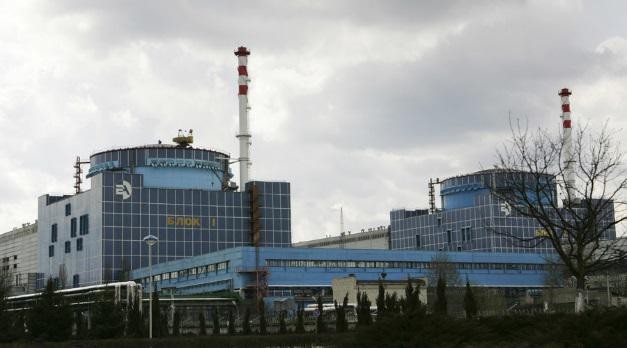Ukraine’s parliament has approved a controversial plan to purchase two Russian-made nuclear reactors from Bulgaria, raising concerns over costs, safety, and corruption risks.
On January 16, the energy committee of the Ukrainian parliament voted to approve the acquisition of Russian-built VVER-1000 reactors for the Khmelnytskyi nuclear power plant.
Located in western Ukraine, the Khmelnytskyi Nuclear Power Plant (NPP) began construction in 1981 and currently operates two VVER-1000 type reactors with a combined capacity of 2,000 MW. The proposed expansion would add 2,200 MW to Ukraine’s power grid.
Energy Minister German Galuschenko defended the plan as crucial for the country’s power grid stability, saying, “Nuclear energy accounts for 60 percent of our energy mix and is a backbone of our energy system against Russian attacks.”
In early July 2023, the Bulgarian parliament authorized their energy minister to negotiate with Ukraine’s Minister of Energy regarding equipment from the abandoned Belene NPP project, which Bulgaria had terminated in 2012.
During Ukrainian President Volodymyr Zelenskyy’s official visit to Bulgaria, the energy ministries of both countries strengthened their cooperation by signing a memorandum of understanding in the energy sector.
In 2024, the European Commission acknowledged that EU aid to Ukraine could potentially fund the purchase of the Russian reactors. Bulgaria continued negotiations on the sale in September 2024.
On 16 January 2025, the Ukrainian Parliament’s Committee on Energy and Housing and Utilities supported draft legislation authorizing Energoatom to purchase the necessary equipment from Bulgaria for constructing blocks 3 and 4 of the Khmelnytskyi NPP.
The controversy
Members of parliament, including some from President Zelenskyy’s party, have questioned the deal’s wisdom, citing concerns about budget impact and technological obsolescence.
Andrii Zhupanyn, an MP from Zelenskyy’s party, raised several questions: “Can we afford to buy Russian nuclear reactors during the full-scale invasion? What is the condition of these reactors? They were purchased by Bulgaria 10-12 years ago – will they even function when they arrive in Ukraine?”
The controversy has intensified amid recent corruption allegations in Ukraine’s energy sector. Politico reported the arrest of Deputy Energy Minister Oleksandr Kheil over alleged bribe-taking related to coal mining equipment.
“In the past decade, numerous criminal cases have involved people using tenders to extract money from Ukraine’s state nuclear power company,” Zhupanyn told Politico.
Minister Galuschenko’s claims about EU and US financial support have also sparked controversy in parliament.
The EU’s representative in Kyiv has explicitly ruled out support. Journalist Yurii Nikolov told Radio NV, “Both Americans and Europeans have stated clearly: ‘You won’t receive a dime for these whims.'”
Nikolov criticized Galuschenko’s statements about financing: “Galuschenko dodged the truth and misrepresented the situation, claiming it would be a loan. Who would lend money for such a project? Moreover, loans aren’t free – Ukrainians will have to repay them.”
Razumkov Center analyst Volodymyr Omelchenko questioned the equipment’s quality, describing the reactors as “the cheapest Russian junk” and suggesting that Bulgaria’s difficulty in selling them should raise red flags.
Environmental group Ekodiya has warned about safety risks associated with “obsolete Russian-made equipment” and advocates for smaller, distributed power facilities, including renewables.
The deal still requires full parliamentary approval. At a recent Tuesday meeting, government officials acknowledged insufficient support for the proposal, according to lawmakers present.
Read also:
- Russian strike triggers blackout in Khmelnytskyi Oblast, home to key Ukrainian nuclear plant
- Czech firm secretly delivers critical nuclear reactor parts to Ukraine amid Russian strikes
- Energoatom unveils plans to build small nuclear reactors across Ukraine amid Russian attacks

